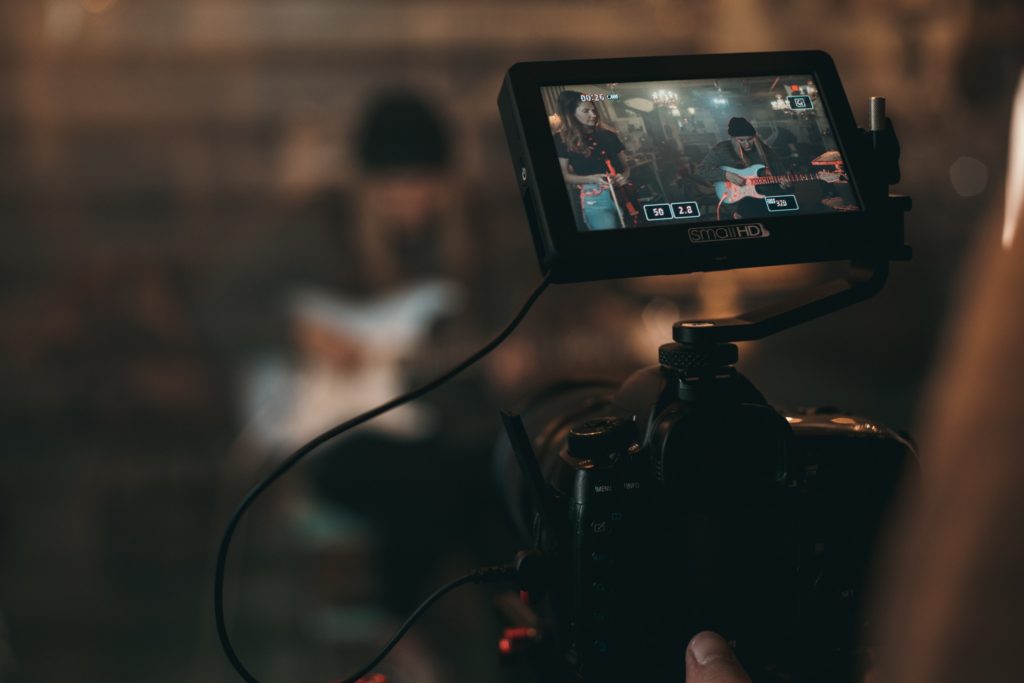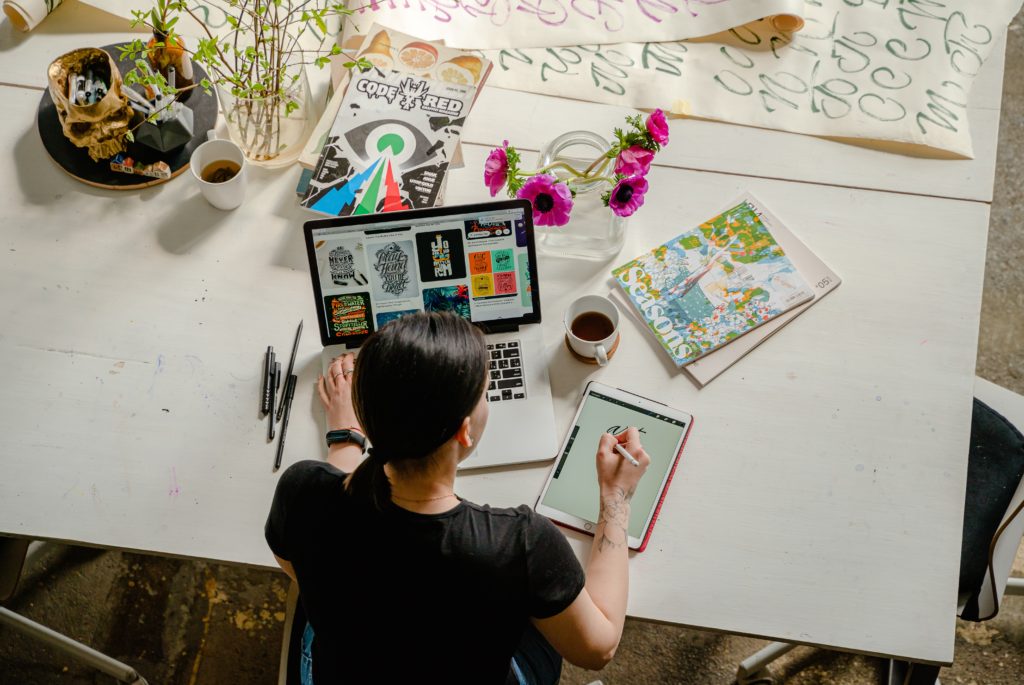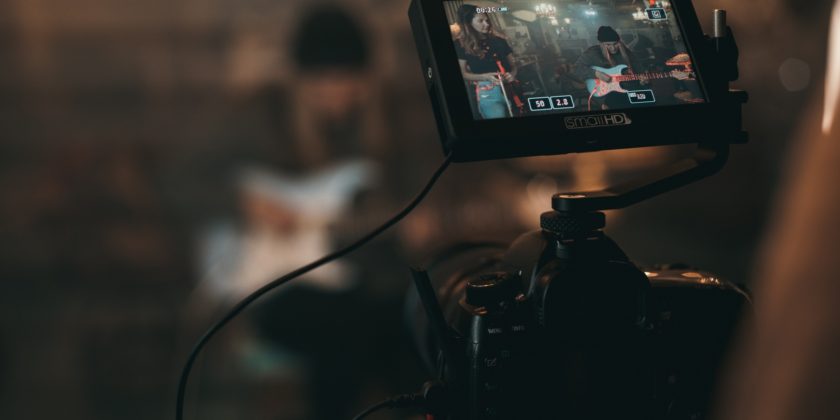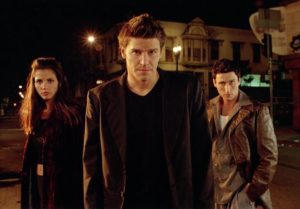Make Time And Effort For Your Own Art
by Ryan Hayes
I’m writing this at a time when I myself am not so disciplined in my craft. I’m a writer who often doesn’t find the time to be able to write his passion projects – and that’s sometimes okay.
I’ve accepted the realities of your go to ideas not always paying the bills. I don’t mean that in a pessimistic way. It just means that I’m still working towards that eventual dream future.
The thing is, you have to make time for your own projects. Otherwise, what’s the point of continuing your excitement for your chosen form of art?

If you don’t take time for yourself, then your mental health will suffer, you’ll start to doubt yourself, and you’ll become resentful. You don’t want to look back and wish you’d finished that film or screenplay.
So, at the end of the day, you have to make sure you’re making time for your own work and the things that make you happy, as well as your responsibilities. Here’s a collection of things that I’ve figured out and advocate for to make sure I’m making the time for myself as well as the collection of other things I have to do.
Small Goals – The 500 Word Requirement
I’m a big proponent of the idea of writing 500 words per day. It’s a small, manageable goal that, with an hour or two a day, is easily done.
Why is this goal important? Apart from the obvious chipping away at whatever task you’re doing, there’s the dedication. The resolve to pick up your pen or laptop and spend that time focused on what you want to accomplish. It keeps the task in your mind and prevents it from being dropped.

Then, there’s the arguement for practice. They say, no matter how much natural ability you have, that you can master any task with 10,000 hours of practice. Making sure you spend time writing 500 words/writing for about an hour everyday, keeps up with your practice and keeps your skills sharp.
The advice behind the advice here is to keep at it, because the more you tell yourself excuses, the more the chances to really create something will slip through your fingers.
Idea Generation
It’s something I teach in one of the earliest curriculum classes. Generating a large enough pool of ideas, from characters to locations to plot twists, helps keep your mind moving and always gives you something to pull out.
Are you struggling to come up with something new to write? Generate a whole bunch of taglines and see which ones stand out to you.

You have a story, but you’re not sure how to make some interesting characters or plot twists to feature in it? Generate some in the same way, or just use a character you’ve previously generated but haven’t had a chance to use yet.
Burn out, writer’s block, and other forms of creative blockage can really sap your motivation to continue, but idea generation is just a useful tool to help keep you refreshing interesting ideas.
Burn Out
Burn out is something that happens all too often with creatives. It’s killed more than one project in its time, and if you’re hoping to lead a creative career or hobby, you will be faced with it at some point. The advice on burnout is nothing new: Take a rest.
Take a walk. Take a vacation. Chill out with your favourite meal and tv show and get your head away from your work. Pull your mind out of the world you’ve created so you can return to it with a fresh outlook and more energy.

Now, make no mistake. The reason this advice appears in so many other blogs about burnout is because it’s true, but the reason it has to keep being said is because sometimes creatives are unwilling to listen.
Resting to prevent burnout can be, in and of itself, a discipline. Burnout is a sign you’re overworked, and being overworked is a sign that there’s things you’re trying to get done. Maybe it’s pressure, or maybe it’s passion, but it can be difficult to pry a creative person away from their work, despite the benefits of even something as simple as taking a walk.
Being Your Own Worst Critic
The previous headers spoke mostly about how to keep moving forward when time and energy is low and life gets in the way, but if you manage to make head-way on a piece of work, or even finish it, what do you do next?

In my experience, writing is always so much more fun than editing, but editing is where something really comes together. Same goes for any form of art. Very rarely is a finished draft your final draft, so when the time comes to put on the final touches, you have to be strict with yourself. Read it/look at it obsessively. Wait a couple of weeks and then look at it with fresh eyes, and most importantly, be honest and realize what’s working and what isn’t.
Have a hero in mind. Someone whose work you look up to and enjoy, and if, in your truly honest opinion, your work doesn’t come close in terms of quality, then you have to look at it again, and along with the idea of the ‘Small Goals’; you have to practice, practice, practice.
Now, there’s always room for experimentation and low-budgets and practice projects, and maybe you can lower your standards a little with ideas like those and have some fun, but if you’re putting something out there and saying ‘this is you at your best’, it better damn well be your best.
And trust me; a masterpiece that you’ve slaved over and tweaked into perfect will always feel so much more rewarding than something you’ve slapped together and looked over once.
Always Be Analyzing
Your work can’t exist in a bubble. If you want to perfect what you’re doing, you have to understand what’s happening out there.
Which artists are making waves right now? Who’re the best writers/directors/photographers you appreciate? Pick through their work and understand why they’re making these creative decisions. Allow it to inform you if you’re ever unsure of how to go about things yourself.

Don’t passively consume media either. Be aware when something is well written/well shot/well made. Take it and remember it and appreciate it, because those little moments of ‘Wow’ is no doubt a standard you should be striving for.
The idea here is to understand how you feel when something happens in front of you. Understand how you came to feel that way, and what about the art evoked those feelings? Getting to the bottom of that journey can take your work to the next level.
Set Up Your Environment
Kind of a confusing one. What do I mean by setting up your environment? Well, I mean create the conditions it takes to do your best work.
Have a place in mind where you can feel comfortable. Do you have a desk? Do you work on your bed, or on a patio table? Whatever it is, make sure it’s available when you have the time. Make sure it’s tidy enough to work on too. If you only have 60 minutes, you don’t want to spend 10 of them cleaning.

Do you work better with music? Gather a selection and a pair of headphones and get yourself into the zone. Quick tip: Your favourite music, and music that’s best to help you focus are sometimes two different things. If you find yourself rocking out instead of working, you may need to swap playlists. Either way, music is a great option for cutting out distractions.
Make sure you have your favourite drinks and snacks ready? Do you need a coffee before you begin? You don’t want to leave any excuse to leave that table when you’ve taken out the time to get something done.
Far too many people’s excuses revolve around ‘just not feeling it’. Tiredness and procrastination are two of the biggest killers of passion projects, and when things just aren’t aligning for you, you force them to,




